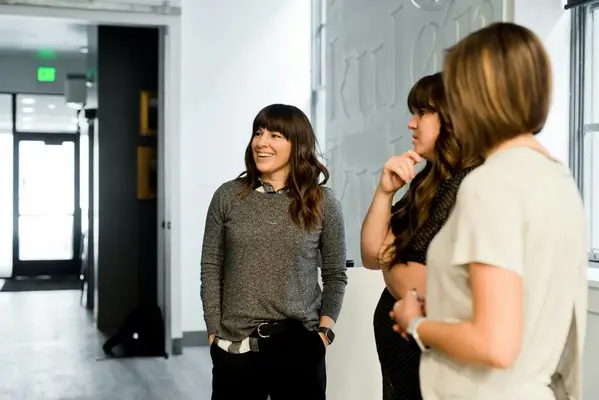Table of Contents
- The Context: The Great Depression and Youth Unemployment
- Key New Deal Programs for Young People
- Sociological Themes in the New Deal for Young People
- Long-Term Impacts of the New Deal on Youth
- Conclusion
The New Deal, introduced by President Franklin D. Roosevelt during the Great Depression in the 1930s, marked a turning point in American socio-economic policy. While it is widely recognized for its sweeping reforms to address unemployment, poverty, and financial instability, the New Deal also targeted specific demographic groups, including young people. This article explores the New Deal’s impact on youth, emphasizing its sociological significance and how it shaped the trajectory of young Americans during a critical period in U.S. history.
The Context: The Great Depression and Youth Unemployment
The Great Depression was a period of unprecedented economic collapse. Between 1929 and the early 1930s, unemployment soared, and industries stagnated. Among those hit hardest were young people, many of whom faced joblessness, limited educational opportunities, and social alienation. In sociological terms, this group encountered structural disadvantages, where economic systems and institutions failed to support their transition into adulthood.
Youth as a Vulnerable Group
Sociologists classify youth as a transitional phase, marked by a shift from dependency to independence. During the Great Depression, this transition was disrupted. The traditional markers of adulthood, such as employment, marriage, and homeownership, were largely unattainable for many young people. This created a unique crisis of identity and purpose among American youth, making them a critical focus of New Deal policies.
The lack of opportunities led to widespread despair, with many young people becoming “lost” within society, as described by sociologists at the time. This loss of purpose not only affected their individual lives but also posed a broader threat to the cohesion and stability of communities. Recognizing this, the New Deal aimed to reintegrate young people into productive roles, offering them both economic support and a renewed sense of social belonging.
Key New Deal Programs for Young People
The New Deal addressed the challenges faced by young people through targeted programs aimed at providing work, education, and training. These initiatives were not merely economic but also social interventions that reshaped the lives of millions of young Americans.
Civilian Conservation Corps (CCC)
The Civilian Conservation Corps was one of the most notable New Deal programs for young people. Established in 1933, the CCC recruited unemployed young men, particularly those from low-income families, to work on environmental conservation projects. Participants built trails, planted trees, and engaged in other infrastructure projects across the nation.
Sociological Impacts of the CCC
From a sociological perspective, the CCC served multiple functions:
- Economic Relief: By providing wages, the CCC addressed immediate economic needs, reducing poverty among young men and their families.
- Social Integration: Many participants experienced a sense of community and purpose, mitigating feelings of alienation and fostering social cohesion.
- Skill Development: The program equipped young men with technical and interpersonal skills, enhancing their employability and facilitating upward social mobility.
- Psychological Benefits: The structured environment and the sense of accomplishment gained from contributing to tangible projects helped many participants overcome feelings of hopelessness.
The CCC’s focus on physical labor also reinforced traditional ideals of masculinity, which had been challenged by the economic impotence many men felt during the Great Depression. However, it also perpetuated gender exclusivity, sidelining young women from this transformative experience.
National Youth Administration (NYA)
Another significant initiative was the National Youth Administration, established in 1935. Unlike the CCC, the NYA targeted both young men and women and focused on providing part-time work opportunities, particularly for students. This allowed young people to pursue education while earning an income.
Addressing Structural Inequalities
The NYA addressed broader structural inequalities in American society. By enabling young people from diverse socio-economic backgrounds to access education and employment, it challenged entrenched patterns of inequality. Furthermore, its inclusion of young women marked a progressive step toward gender equity, albeit within the constraints of the era’s social norms.
The NYA’s vocational training programs were particularly significant in bridging the gap between education and employment. By equipping young people with marketable skills, these programs enhanced their long-term prospects. For many women, this represented a rare opportunity to achieve financial independence, albeit within a society that still largely confined them to domestic and clerical roles.
Works Progress Administration (WPA) and Youth Programs
The Works Progress Administration, although primarily designed for adult workers, also included youth-focused programs. These initiatives provided vocational training and employment in arts, public works, and literacy projects.
Cultural and Social Capital
The WPA’s youth programs contributed to the development of cultural and social capital among young Americans. Participation in artistic and cultural projects allowed many to express themselves creatively, while vocational training enhanced their practical skills. These experiences enriched their identities and expanded their opportunities for future success.
For instance, young people employed in the Federal Art Project, part of the WPA, not only gained income but also contributed to the cultural enrichment of their communities. Similarly, literacy and education programs empowered many young people to overcome barriers to personal and professional growth.
Broader Impacts of New Deal Programs
While specific programs like the CCC and NYA were directly targeted at youth, the broader New Deal initiatives also indirectly benefited young people. Infrastructure projects improved access to schools and public services, while reforms in labor laws laid the groundwork for better working conditions for future generations. These efforts collectively created an environment where young people could envision a more secure and prosperous future.
Sociological Themes in the New Deal for Young People
The Role of the State in Social Welfare
Get the full article AD FREE. Join now for full access to all premium articles.
View Plans & Subscribe Already a member? Log in.





